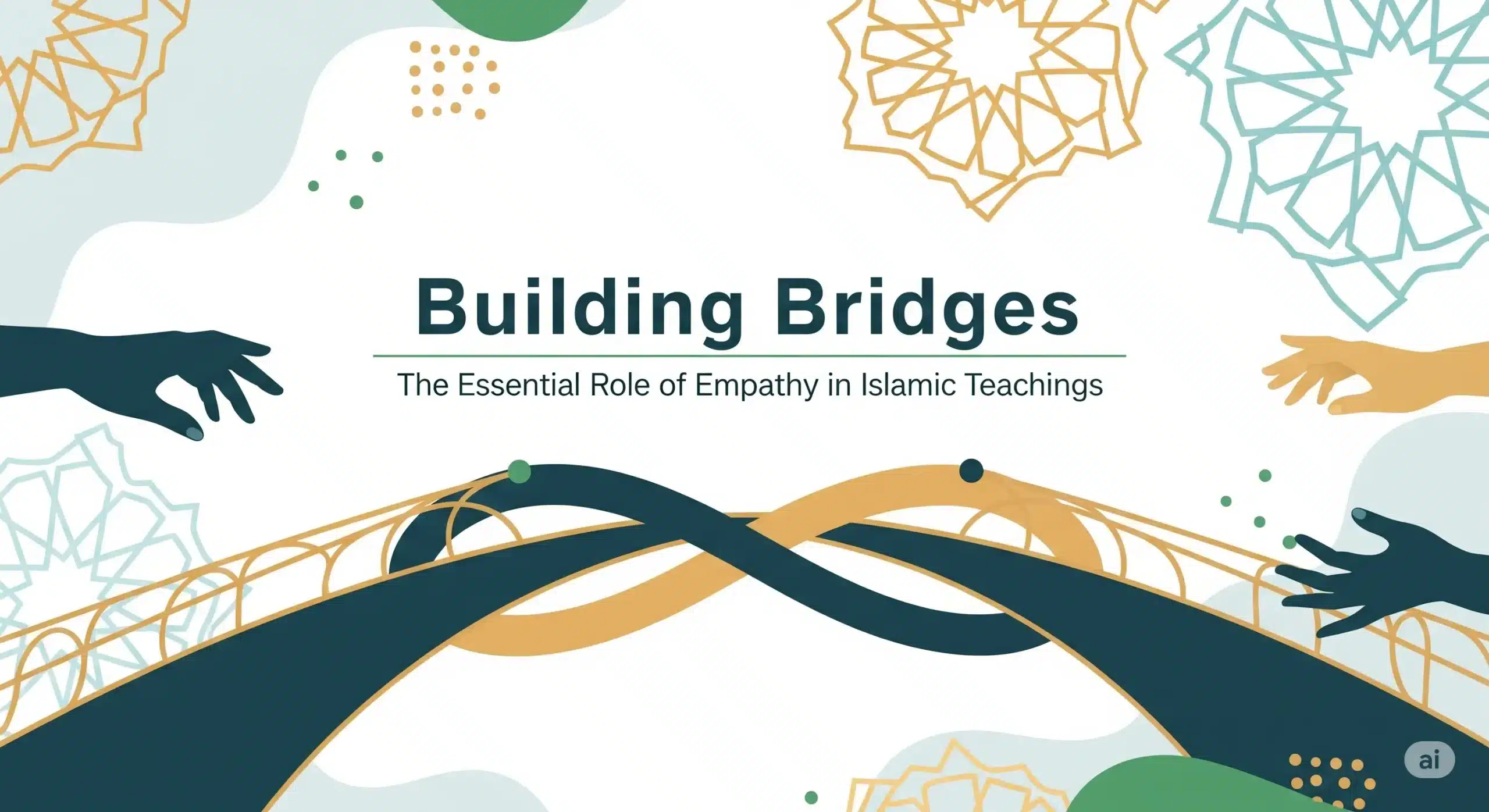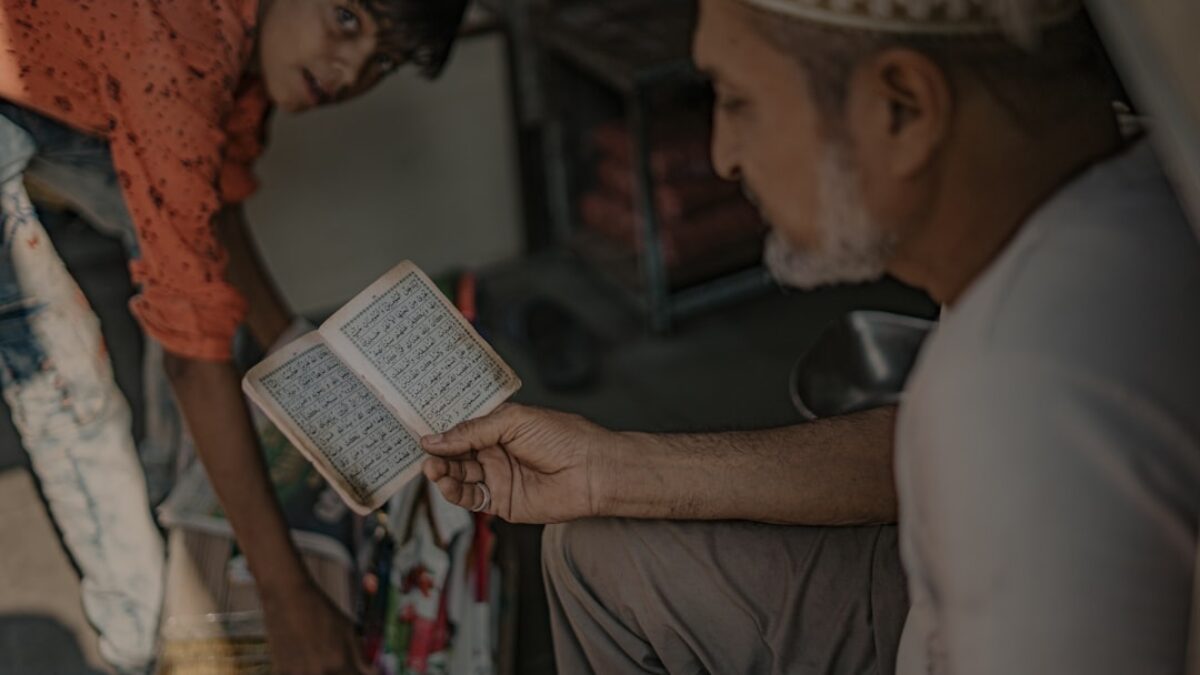Introduction
Empathy, the capacity to understand and share the feelings of others, is a fundamental aspect of human interaction. In a world often marked by divisions and misunderstandings, the need for empathy becomes more pressing. Islamic teachings emphasize the importance of empathy not only as a moral imperative but also as a means to build bridges among diverse communities. This article explores the multifaceted role of empathy within Islamic teachings, underlining its significance in fostering understanding and compassion among individuals and cultures.
The Islamic Framework of Empathy
Empathy in the Qur’an
The Qur’an, the holy book of Islam, is replete with teachings that encourage empathy and compassion. Verses such as Surah Al-Baqarah (2:177) emphasize righteousness, which includes caring for others, indicating that true piety extends beyond rituals to fostering empathy and social responsibility. An essential aspect of empathy in Islam is rooted in understanding the struggles and challenges faced by others. The Qur’an implores believers to engage with those in need, emphasizing that aiding others is a reflection of one’s faith.
Moreover, empathy in Islam has a spiritual dimension. The Prophet Muhammad (peace be upon him) is often referred to as "Rahmatan lil ‘Alamin," meaning "a mercy for the worlds." This title signifies that empathy and compassion are central to the Islamic worldview. His interactions with companions and strangers alike emphasize understanding emotional states, listening attentively, and responding with kindness.
The Hadith Tradition
The sayings and actions of the Prophet Muhammad (p.b.u.h.), encapsulated in the Hadith, further reinforce the significance of empathy. For instance, one Hadith states, “None of you truly believes until he loves for his brother what he loves for himself.” This saying highlights the reciprocal nature of empathy; it urges individuals to put themselves in the shoes of others.
In a practical sense, the act of empathy involves not only feeling for others but also taking tangible steps to address their pain or suffering. For example, when the Prophet encountered someone in distress, he took time to listen and provide support, thus modeling an empathetic approach. Such stories from the Hadith serve as valuable lessons for Muslims today, illustrating how empathy can bridge social divides and foster unity.
Real-World Examples of Empathy in Action
Community Responses During Crises
Empathy manifests powerfully in times of crisis. Recent global events, such as the COVID-19 pandemic, highlighted the vital role of empathy within Muslim communities. Many mosques and Islamic organizations mobilized to provide food, healthcare, and emotional support to vulnerable families. These initiatives are grounded in Islamic teachings and serve as practical applications of empathy.
For instance, during the pandemic, the Islamic Relief organization launched numerous campaigns to aid affected communities worldwide. They provided food parcels, medical supplies, and access to mental health resources. Community members, inspired by their faith, volunteered their time and resources, illustrating a profound commitment to the well-being of others.
Interfaith Initiatives
Another important dimension of empathy is its role in interfaith dialogues. Many Muslims participate in interfaith outreach programs aimed at fostering understanding and solidarity among different religious communities. For example, during the "Building Bridges" initiative in various cities, Muslim volunteers collaborated with individuals from different faith backgrounds to engage in community service projects, such as food drives and neighborhood clean-ups.
These initiatives reflect a commitment to the values of empathy, showcasing how Muslims can work alongside people of other faiths for a common cause. By engaging authentically with others who may hold differing beliefs or practices, Muslims exemplify the empathetic approach encouraged in Islamic teachings.
Authentic Reviews from Practicing Muslims
Personal Testimonies
Empirical evidence and personal stories illustrate the practical application of empathy within Islamic contexts. Many practicing Muslims express how empathy has shaped their interactions and relationships. Take the story of Fatima, a young Muslim woman who, inspired by her faith, established a community support group for single mothers facing social stigma. She shares, “Islam has taught me to look beyond my own struggles. Seeing the challenges these women face made me realize how essential empathy is in our daily lives.”
Similarly, Ahmed, a volunteer at a local soup kitchen, states, “It’s about more than just charity; it’s about connection. When I serve food to those in need, I’m not just feeding them—I’m seeing their dignity, their struggles. That connection is what empathy is all about.” These testimonials underline the transformative potential of empathy rooted in Islamic teachings.
Practical Tips for Implementing Empathy in Daily Life
Active Listening
One of the most practical ways to cultivate empathy is through active listening. This involves not just hearing what an individual says but engaging deeply with their emotions and experiences. Practicing active listening can be as simple as setting aside distractions and giving someone your undivided attention. This approach helps create an environment where people feel valued and understood.
Volunteering
Engaging in volunteer work is another effective way to practice empathy. By spending time with marginalized communities, individuals can better understand the challenges faced by others. Many mosques offer volunteer programs that facilitate community service, whether it’s providing food, tutoring children, or assisting seniors. These experiences not only allow participants to contribute positively but also foster connections within their community.
Cultivating Compassionate Language
The language we use plays a powerful role in how we express empathy. Choosing words that reflect understanding and care can significantly impact interactions. Instead of dismissing someone’s feelings, acknowledging their emotions can lead to deeper connections. Phrases like “I understand this is difficult for you” can validate emotions and foster a sense of community.
Engaging in Open Dialogue
Creating spaces for dialogue can bridge differences and promote empathy. Facilitating discussions focusing on shared values rather than divisions encourages mutual respect and understanding. Many mosques hold forums on topics like race, gender, and social justice, allowing community members to share perspectives and experiences.
Frequently Asked Questions (FAQs)
What is the significance of empathy in Islam?
Empathy is vital in Islam as it fosters understanding, compassion, and social responsibility. It reflects a core principle of treating others with kindness, which is emphasized throughout the Qur’an and the Hadith.
How can Muslims practice empathy in a diverse society?
Muslims can practice empathy in diverse societies by engaging in community service, participating in interfaith dialogues, and actively listening to others. Building relationships with people of different backgrounds helps cultivate mutual respect and understanding.
Are there any specific teachings in the Qur’an that emphasize empathy?
Yes, various verses in the Qur’an emphasize the importance of compassion and social responsibility. Surah Al-Ma’idah (5:32) underscores the value of human life and promotes a collective responsibility toward aiding those in need.
How can empathy contribute to social harmony?
Empathy can bridge divides and foster unity among diverse groups. By understanding the challenges and experiences of others, individuals can work collaboratively to address social issues and promote inclusive communities.
What role does empathy play in conflict resolution?
Empathy is essential in conflict resolution as it allows parties to understand each other’s perspectives. Through empathetic dialogue, misunderstandings can be addressed, leading to constructive solutions and reconciliation.
Conclusion
The role of empathy in Islamic teachings cannot be overstated. It serves as a powerful tool for fostering understanding, compassion, and social responsibility among individuals and communities. As the world faces increasing polarization and misunderstandings, the teachings of empathy within Islam offer a path toward unity and reconciliation. By engaging in active listening, community service, and open dialogue, Muslims can embody the empathetic ideals rooted in their faith.
In a rapidly changing world, the need for empathy remains paramount, offering hope for building bridges across cultural and social divides. By embracing empathy, individuals can contribute to a more harmonious and inclusive society, following the timeless principles found within Islamic teachings. Through collective efforts to nurture compassion, the potential for positive change becomes limitless.
























Post Comment